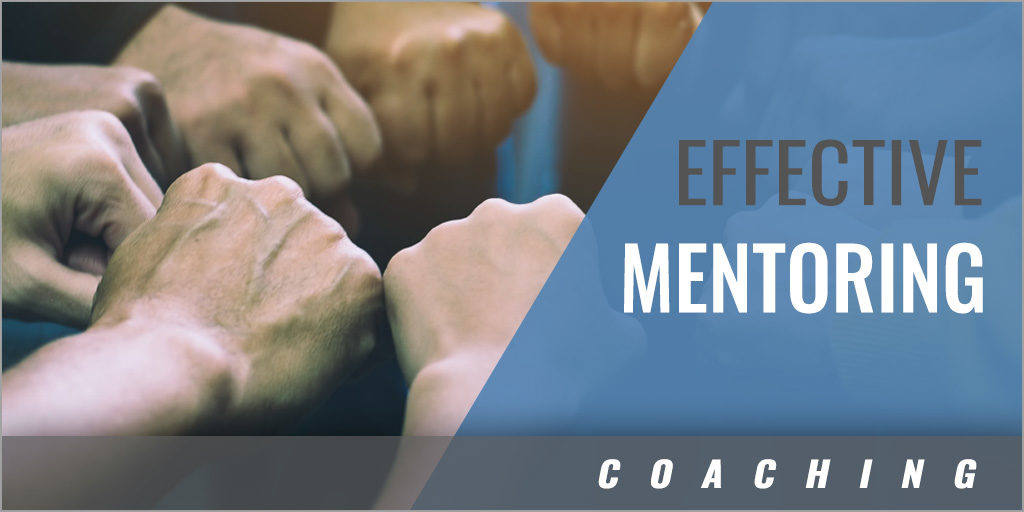|
By: Wade Gilbert Originally Published in: Coaching Better Every Season Provided by: Human Kinetics Networking helps coaches build a support system for regular and ongoing coach learning. Effective networking can lead to opportunities to connect with a coach who is willing to spend more time to serve as a mentor. At its core, mentoring is simply the process of helping someone else get better. Mentors help other coaches get better by teaching, inspiring, prodding, leading, molding, encouraging, or praising. Often, the most important role that a quality mentor plays is serving as a sounding board - just being available to listen. Effective mentoring results not only in improved coaching but also in increased coaching confidence. This aspect is particularly important for coaches just starting their careers, who often have the needed skills but lack confidence because of limited coaching experience. For example, NBA coach Steve Kerr, who guided his team to the championship in his first year as a coach, attributes his quick rise to coaching success to the guidance he received from his many mentors. He claims that the best piece of mentoring advice he received was a simple reminder to be himself: "That's what all my mentors have told me: 'Just be yourself, be true to yourself, stick to your principles, and it'll work.' " This basic suggestion helped him gain confidence in his own unique coaching style, instead of trying to emulate a style that worked for someone else. When seeking potential mentors, coaches should look for other coaches who are passionate about learning, trustworthy, knowledgeable, up to date on coaching trends, and willing to share their coaching insights. World and Olympic championship coach Debbie Muir, recognized as among the best coaches ever in the sport of synchronized swimming, exemplifies the sentiments of successful coaches who eagerly accept opportunities to mentor other coaches: I enjoy the opportunity to pass on the lessons I've learned. It is exciting to spend time with coaches who are so passionate about what they are doing and so excellent and to be a small part of helping them to reach even higher levels. Building a mentoring relationship can be as easy as asking another coach if he or she has a few minutes to chat. But to gain the full benefits of a quality mentoring experience, coaches should follow a six-step strategy for building a mentoring relationship.
Sometimes mentoring for coaches is a more formal arrangement whereby one coach is assigned a mentor. For example, an athletics director might implement a formal buddy system in which a new coach is paired with an experienced coach in the same school. Formal mentoring arrangements like this are most effective when the relationship follows well-defined sequential phases. For example, the four phases of a mentoring relationship in coaching have been described as the introductory, participatory, developmental, and self-regulatory phases. In the introductory phase the emphasis is on creating a foundation for a trusting relationship and identifying potential learning needs of the mentored coach. At this time the coaches should openly share their coaching philosophies, ambitions, perceived strengths and weaknesses, and professional development goals. The focus of the participatory phase is on observation of the mentee's coaching. Sufficient time should be provided for the mentor simply to watch the coach in action across training and competition. An experienced coach asked to assume the role of a mentor often finds it difficult not to intervene, particularly when he or she identifies areas of potential growth when observing the mentee coach. When speaking about characteristics of effective mentor coaches, world and Olympic championship women's soccer coach Tony DiCicco places being a good listener at the top of his list. Good listeners show empathy and patience. With the advent of inexpensive and varied tools for video sharing, mentor coaches can observe mentees easier than ever, regardless of physical location. Ideally, mentee coaches should provide the mentor with two or three examples of training sessions and at least one competition event. Sharing of written plans for the training sessions and competitions is also recommended. Effective mentors will resist the temptation to intervene too quickly as they recognize the complexity and situation-specific nature of coaching. A genuine portrait of a coach requires multiple observations across various coaching situations. In the developmental phase mentors shift their focus from observation to facilitation. Mentors play many roles, not the least of which is a facilitator who can accelerate coach learning by shining a light on specific areas of coaching that can be enhanced. The primary role of mentors in the developmental phase is not to provide answers, although they certainly will be expected to share insights and experiences. The most effective mentors are skilled at posing challenging questions that lead to healthy debate and increased coach self-awareness. Effective mentors will pose questions such as the following: What did you do well during pressure situations? Can you explain why you approach coaching the way you do?-How did you positively or negatively influence the performance of your athletes? What areas of your coaching can you improve? Effective mentors also understand the importance of the timing of their questions. Emotions can, and often do, run high in coaching. Good mentors have a keen sense of how others are feeling, sometimes referred to as emotional intelligence. Feedback from a mentor will be best received when the mentee coach is most open to receiving it. The confidence to be brutally honest in responding to challenging questions depends on the level of trust that is established in the first two phases of the mentoring relationship. Effective mentoring relationships reach the fourth and final phase, referred to as the self-regulatory phase of mentoring. At this point effective mentors gradually phase themselves out of their formal role as observers and facilitators and shift to being trusted members of a coaching network who are available when needed. Ideally, mentors will continue to check in intermittently with the mentee coach, both to nurture the relationship and to inspire the mentee coach to continue her or his efforts to enhance coaching knowledge. Formal mentoring programs based on these four phases are increasingly part of the coach education programs developed for high-performance coaches around the world. Coaches of national and Olympic teams are often partnered with senior coaches as part of a mentoring relationship that lasts hundreds of hours across several years. Formal mentoring for coaches in youth sport, high school, and college settings, however, still appears to be relatively rare. A cautionary note about formal mentoring concerns situations in which coaches do not get to choose their mentors, such as when the mentoring is arranged as a formal part of coach education program. When mentor coaches approach their role from a position of authority and power, attempting to impose their style and strategies on a mentee coach, the results can be demoralizing and lead to coach burnout instead of coach development. Mentoring is most effective when the mentoring relationship is built on trust and empathy. Whether the relationship is informal or formal, all successful coaches rely on mentors to enhance their learning through collaboration. Although the mentoring process may seem daunting at first, many experienced coaches out there find great satisfaction in serving as mentors. The best coaches have a deep-rooted love for their sport and willingly embrace opportunities to give back to the sport through mentoring. As noted by Hall of Fame college football coach Grant Teaff, "The impact of giving back to the sport we coach cannot be overestimated. We have all been influenced positively by other coaches who took the extra time to add to our own knowledge base. You will find that your coaching experience is much richer and more enjoyable when you collaborate with mentors and when you in turn mentor other coaches. When coaches speak about their mentoring experiences, they routinely acknowledge that both the mentor and the mentee enhance their coaching knowledge through the shared experience. |






